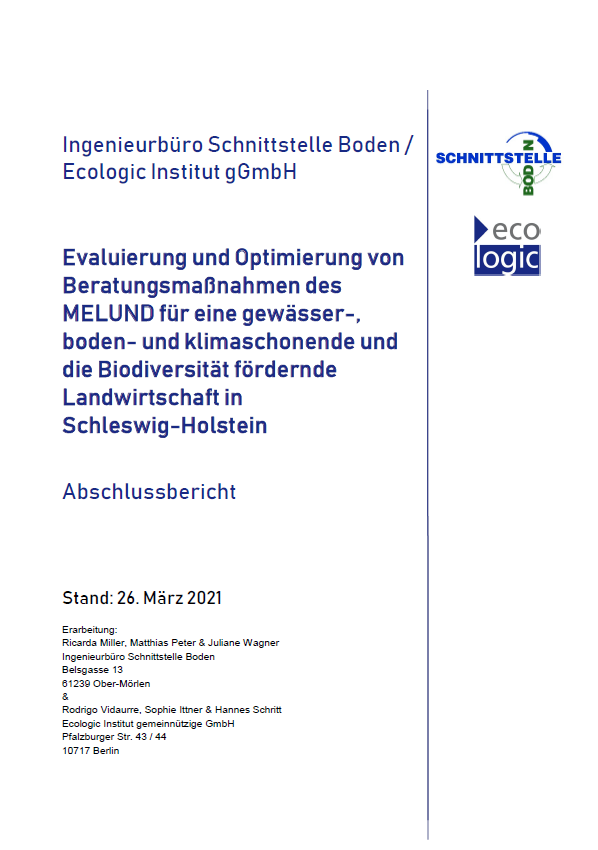Evaluierung und Optimierung von Beratungsmaßnahmen des MELUND für eine gewässer-, boden- und klimaschonende und die Biodiversität fördernde Landwirtschaft in Schleswig-Holstein
- Publication
- Citation
Ricarda Miller, Matthias Peter, Juliane Wagner, Rodrigo Vidaurre, Sophie Ittner & Hannes Schritt (2021): Evaluierung und Optimierung von Beratungsmaßnahmen des MELUND für eine gewässer-, boden- und klimaschonende und die Biodiversität fördernde Landwirtschaft in Schleswig-Holstein. Abschlussbericht. März, 2021.
The state of Schleswig-Holstein relies on the principle of supportive agricultural advice and the voluntary participation of farmers in advisory services to reduce the negative impacts of agricultural production on water, climate, soil and biodiversity.
In 2020, the working group Ingenieurbüro Schnittstelle Boden & Ecologic Institut gGmbH was commissioned by the state of Schleswig-Holstein to evaluate and optimize MELUND's advisory measures for water, soil and climate-friendly agriculture that promotes biodiversity.
The aim of the project was to describe, analyze and evaluate the advisory measures with regard to their impact on the protected goods water, climate, soil and biodiversity. The aim was to identify potentials in the respective advisory services as to how they can take other protected goods into account. The possibility of synergies was worked out.
The report summarizes the key findings from the project, evaluates the strengths and weaknesses of the advisory system, and makes concrete suggestions for improving specific advisory measures. A few examples of the results are presented below:
- The analysis of the advisory content via newsletters, advisory conferences and interviews with advisors* indicated too little thematic reference to arable and grassland-specific aspects. Important content with positive effects on several protected goods, such as intensification of green cover (catch crops and undersown crops), crop rotation adjustments and reduced tillage should be addressed more frequently.
- Intensifying advice on crop rotation-specific post-harvest and cover crop management would also represent a significant step towards greater efficiency in terms of groundwater protection.
- The online survey of farmers and interviews with advisors showed that farmers' interest in topics such as soil health, extended crop rotations and catch crops is growing strongly.




